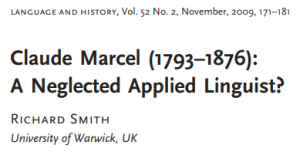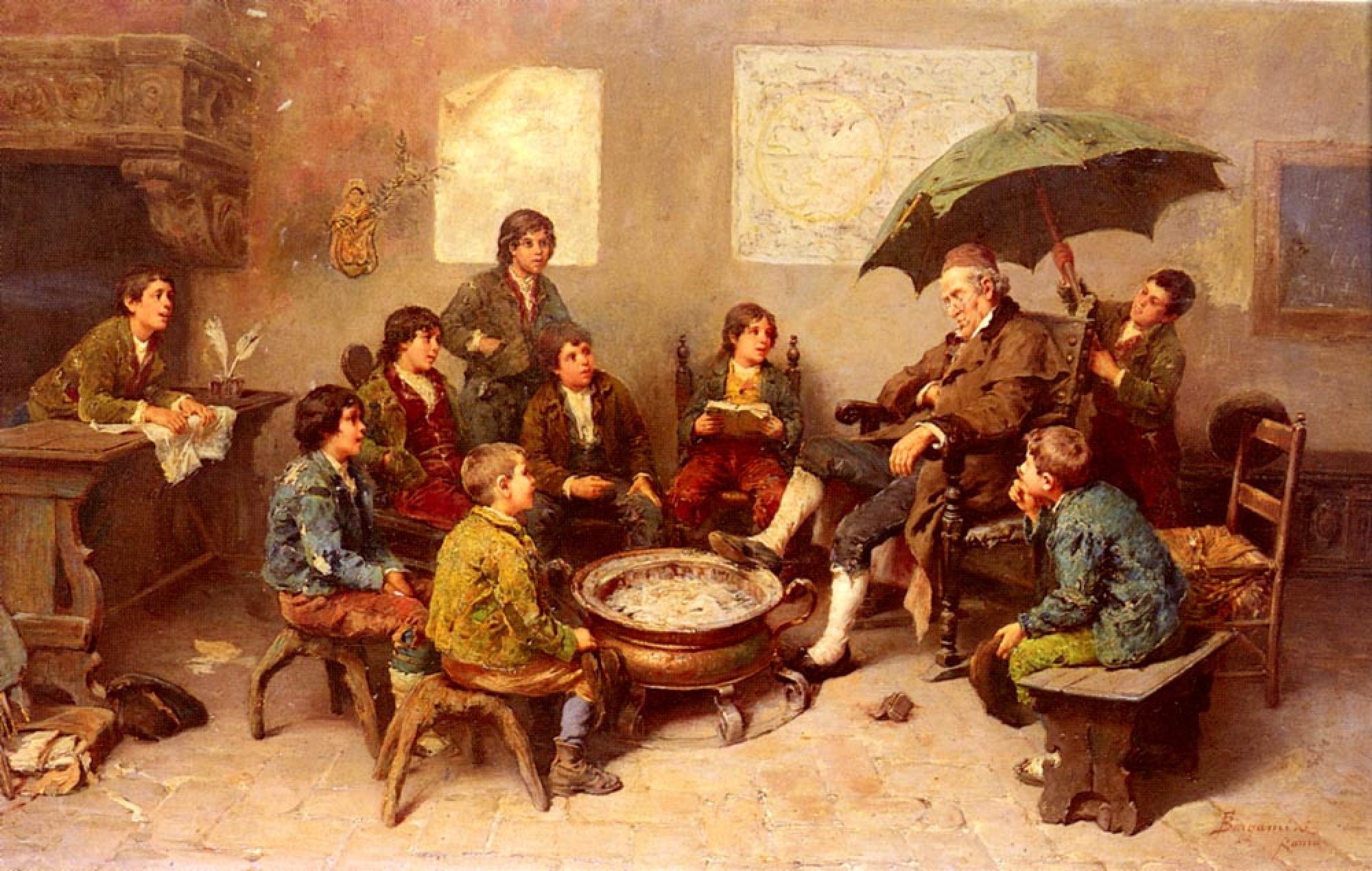PDF #47 – Claude Marcel 1793-1876 A Neglected Applied Linguist Richard Smith University of Warwick UK

This article contributes to the as yet underexplored field of applied linguistic
historiography by surveying the life and achievements of Claude Marcel
(1793–1876), author of a two-volume study of language education published
in London in 1853 under the title Language as a Means of Mental Culture
and International Communication. The question of whether Marcel was an
applied linguist ‘avant la lettre’ is addressed, as are possible reasons for the
contemporary and subsequent neglect of his work. It is suggested that the
identification of precursors depends on one’s view of the nature of applied
linguistics, and that there are alternatives to a linguistics-focused conception. Indeed, a consideration of Marcel’s writings — and the contemporary
and subsequent neglect of them — highlights the way language teaching
theory has tended, for the last 120 years or more, to be dominated by
linguistic much more than educational considerations.
Claude Marcel (1793–1876), who served in Cork as an official representative of the French government between 1816 and c. 1864, was additionally an innovative teacher of French and the author of a two-volume study of language education published in London in 1853 under the title Language as a Means of Mental Culture and International Communication; or, Manual of the Teacher and the Learner of Languages.
A Neglected Applied Linguist for Howatt (1984/2004: 174), ‘there is no single work in the history of language teaching to compare with it for [. . .] strength of intellect [. . .] breadth of scholarship [. . .] and [. . .] wealth of pedagogical detail’, with the possible exception of Henry Sweet’s (1899) The Practical Study of Languages. Should we not, then, consider Claude Marcel a major pioneer of applied linguistics, comparable in this respect with figures like Sweet (1845–1912) and Harold E. Palmer (1877–1949)? Although his work had little apparent influence on his contemporaries, Marcel’s principled and systematic approach to the elaboration and selection of teaching methods seems at first sight to qualify him as an early applied linguist of some stature. In this article I present original findings relating to Marcel’s overall career and writings as a basis for considering further the question of Marcel’s status — or otherwise — as an applied linguist avant la lettre. In so doing, I hope to contribute a fresh perspective in the as yet underdeveloped area of applied linguistic historiography. Thus, while Linn (2008) — who also remarks on a relative dearth of research in this area — has recently made a convincing case for the ‘birth of applied linguistics’ in Anglo-Scandinavian work of the late nineteenth century, I shall suggest, taking Marcel’s work as a case in point, both that the identification of precursors depends very much on one’s view of the nature of applied linguistics and that alternatives to a linguistics-focused conception may deserve greater consideration.
You can check more articles like this on my PDFs sections and you can also visit my Youtube channel.
